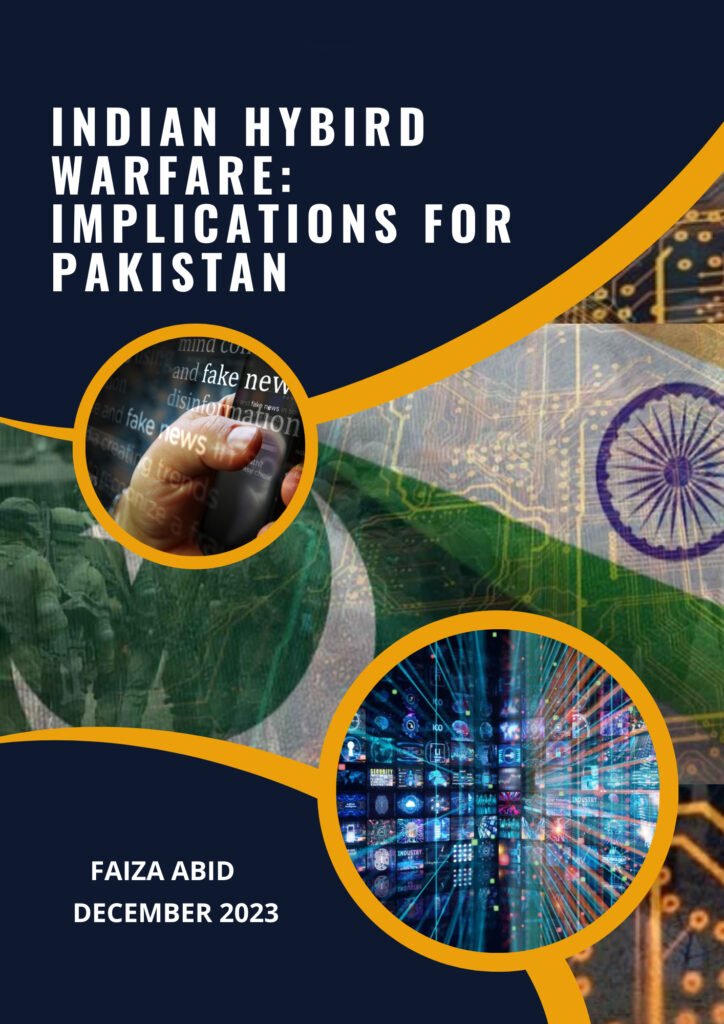INDIAN HYBRID WARFARE: IMPLICATIONS FOR PAKISTAN

ABSTRACT
In the 21st century, classical warfare between the states has evolved. War has become multi-dimensional and multi-level, instigated by clandestine agents via a blend of conventional and non-conventional means. It employs distinct instruments of power, including economic, military, political, and civil. By blurring the lines between peacetime and wartime, hybrid wars have made identifying the responsible parties and generating potential retaliatory actions extremely challenging. This paper argues that Pakistan has been the victim of hybrid warfare from its arch-rival India, which has concurrently employed elements of non-kinetic warfare to disrupt Pakistan. This study finds that India’s utilisation of hybrid warfare tactics presents complex and multifaceted challenges for Pakistan, demanding a thorough comprehension of these methods and the vulnerabilities they exploit. This underscores the critical imperative for Pakistan to swiftly develop and implement integrated countermeasures spanning economic, diplomatic, legal, technological, and societal domains. Failure to address these threats effectively not only jeopardises Pakistan’s security but also risks further destabilisation of the region.

CASS LAhore

The Centre for Aerospace & Security Studies (CASS) was established in July 2021 to inform policymakers and the public about issues related to aerospace and security from an independent, non-partisan and future-centric analytical lens.
CASS Newsletter
- Home
- About Us
- Research Domains
- Publications
- Events
- Gallery
- Contact Us
@2021 - All Right Reserved. Designed and Developed by PenciDesign




